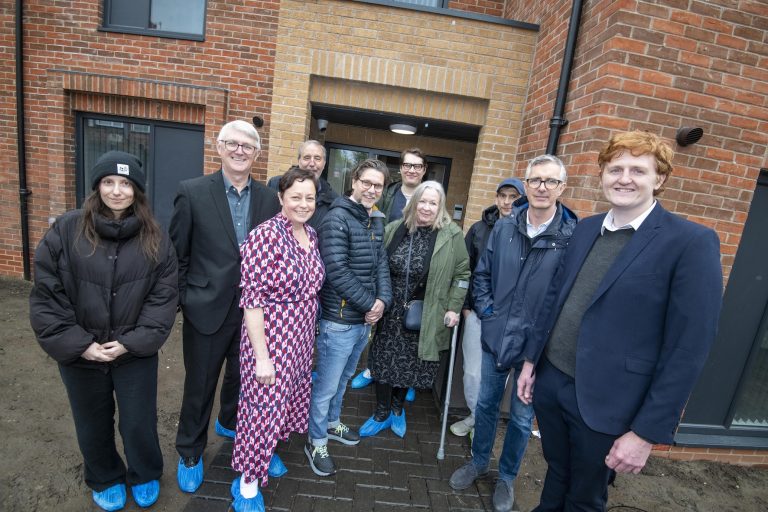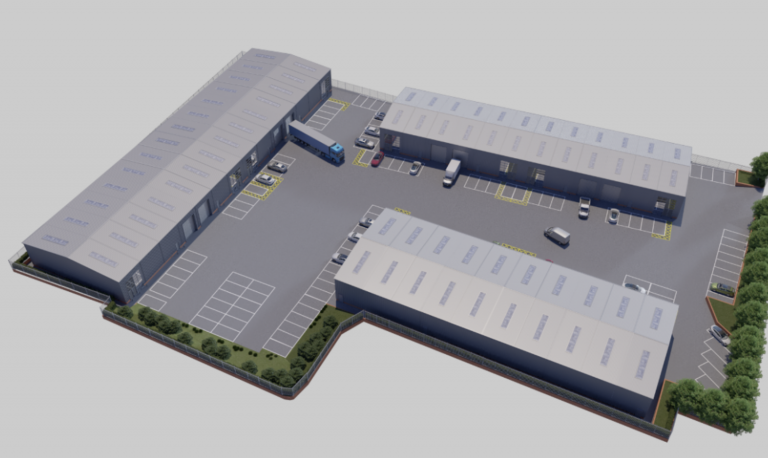Purpose Media to support major children’s charity
Blueprint Interiors drives wellbeing in design with workplace experience manager appointment
Pendragon’s new owner to slash hundreds of jobs
How your East Midlands business can get the edge over the competition
Private equity firm invests in replacement vehicle parts supplier
Radial Equity Partners has invested in Rimmer Bros, a Lincolnshire-based supplier of replacement parts for UK marque vehicles, including Jaguar, Land Rover, MG, Mini, Rover and Triumph.
Founded in 1982, Rimmer Bros maintains a comprehensive product library of over 50,000 SKUs sold primarily on a direct-to-consumer basis. The company has approximately 80 employees working out of its operation in Lincoln.
Radial has simultaneously invested in Moss Motors, a U.S.-headquartered aftermarket supplier of parts for British cars, to form “a leading, global specialty supplier of restoration & replacement parts focused on British vehicle brands.”Bill and Graham Rimmer, founders of Rimmer Bros, said: “The merger of these highly complementary businesses creates a global business with immense R&D, sourcing, marketing and distribution capabilities to better serve our loyal customers.”
“We are excited by the opportunity to carry on the great legacies of these two family-owned businesses,” said Jim McDonough, partner of Radial. “We are committed to continuing to provide leading service to customers as well as expanding the offering of parts solutions across existing British brands as well as new vehicle marques.”
New homes for rough sleepers funded by music open
Former rough sleepers in Nottingham are about to make their home in new accommodation named in honour of local businessmen whose vision provided the funds to make the building possible.
At a ceremony on Monday 22 April the block of eight purpose-built flats in Hyson Green was officially named Akins House after George and Sean Akins – the directors of Nottingham-based live music promoter DHP Family.
Beginning in 2018 they masterminded the development of Beat The Streets – the annual one-day music festival dedicated to raising funds to support work with local rough sleepers by the charity Framework. Funds raised from tickets, bar sales and merchandising at each festival have been used in a variety of ways to house and support rough sleepers.
The £89,500 raised at Beat The Streets in January 2023 was essential in enabling the £1.4m building project to go ahead: the money completed the funding required for the project at a time when prices were rising steeply. It was the first time that Beat The Streets funds had been used to support a capital project.
Work began on the building last summer and has recently been completed. The flats will be occupied in the coming days, offering a permanent home with personalised support to help each resident live independently. This includes access to drug, alcohol and mental health support and employment guidance.
In addition to DHP’s support with the building cost, Framework corporate supporters at local Tesco stores have fundraised to contribute welcome packs to make each resident feel more at home.
Framework’s Deputy Chief Executive Claire McGonigle said: “The contribution of DHP Family to our work with rough sleepers in Nottingham since 2018 has been remarkable, vital and unprecedented.
“Never before has a private business supported our work in this way or to this extent. Nearly £500,000 has been raised through DHP’s award-winning music festival Beat The Streets. These funds have been used in a variety of ways and have helped to change hundreds of lives for the better.
“The Streets festival ensured that we had all the funds in place to proceed with the project for eight flats for former rough sleepers at Birkin Avenue. Without these funds the project could not have gone ahead.
“It is therefore fitting that the name of the new premises should celebrate the vision of DHP directors George and Sean Akins in creating Beat The Streets.
“In naming our new accommodation Akins House we are also paying tribute to the thousands of people who have bought into George and Sean’s vision for Beat The Streets over the years and played a part in making each year’s event such a special occasion – the staff at DHP; the hundreds of bands, solo artists, technicians, stewards and administrators who so generously give their time and talent; and the large and enthusiastic audiences who come along each year. Thank you to all of them.
“We are also most grateful for the core capital funding from the government’s Rough Sleeping Accommodation Programme and for Nottingham City Council’s support for the project overall.”
Managing Director of DHP Family, George Akins, said: “Everyone at DHP is proud of the funds we have raised for Framework since starting Beat The Streets in 2018. Contributing towards permanent accommodation is a great achievement, and we’re very pleased to see the tangible difference the festival is making to the lives of local homeless people.
“With our total raised almost at £500,000 now, we look forward to continuing to support Framework’s important work. Thank you to all the artists, attendees and staff who have contributed time, effort, and money to make our fundraising so successful.”
In the five years since the first Beat The Streets festival in 2018 nearly £500,000 has been raised in total. In 2022 Beat The Streets received national recognition by winning the Sarah Nulty Community Impact Award at the UK Festival Awards.
Several hundred homeless people have received support which has been fully or partly funded through Beat The Streets. This has ranged from providing emergency shelter, urgent health assessments and periods in specialist supported housing, through to resettlement plans and permanent homes with personalised support.
This integrated approach aims to set people up for success and prevent them from falling back into the cycle of repeat homelessness.
Commenting on Tesco’s continued support, Darren Print, Store Manager at Tesco Toton Extra, said: “Stores across Nottingham and Derbyshire wanted to come together to support a single cause and the work of Framework really stood out to us.
“Through a series of fundraising activities and the hard work of colleagues and our generous customers we’ve been able to provide vital support for the great work Framework does. We’re incredibly proud to have helped and hope this will go some way towards making a difference to people’s lives.”
Midlands construction firms fear they won’t last the year
Nearly two thirds of East Midlands and over a third of West Midlands construction firms are concerned they won’t be able to trade into 2025, according to a new report from business advisory firm FRP.
Of the senior decision makers surveyed across the Midlands construction sector, 64% of East Midlands firms and 38% of West Midlands firms aren’t confident that they will be able to trade through the next 12 months. The East Midlands are the most pessimistic part of the UK surveyed when it came to construction businesses’ prospects.
FRP’s data found that the regions’ businesses were finding it increasingly difficult to access funding, with a split field across the Midlands. While nearly two thirds (64%) of East Midlands businesses say they found it more difficult to secure necessary backing last year than the year before, only 38% of businesses in the West Midlands say the same.
Tax burdens were also a concern for businesses in both the East and West Midlands, with nearly half (48%) and half (50%) of firms, respectively, admitting they will struggle to pay their tax liabilities or any outstanding tax in full this year.
Meanwhile, 76% of East Midlands and 62% of West Midlands firms flag that political uncertainty in an election year is either causing them to delay investments or prompting clients to postpone commissioning new work.
East Midlands firms surveyed also say that factors such as supply chain disruption (18%) and the insolvency of sub-contractors or customers (18%) are likely to damage their prospects, while West Midlands firms cite factors like high interest rates (20%) and weak end-consumer demand (18%).
In response to the headwinds they face, a focus of East Midlands businesses will be renegotiating existing contracts (28% vs. 16% of West Midlands firms), while West Midlands firms will be looking to change suppliers to cheaper alternatives (36% vs. 22% of East Midlands firms).
Another split field across the Midlands was seen in revenue and profitability expectations. One in six (16%) East Midlands firms expect profitability to increase over the coming year, compared to last year, against 36% of West Midlands businesses that feel the same.
Similarly, just over one in nine (12%) East Midlands businesses expect to see revenue increase year-on-year, compared to 42% of their counterparts in the West.
Nathan Jones, Restructuring Advisory Partner at FRP in Leicester, said: “The results across the Midlands are concerning, but particularly so in the East.
“It’s possible that what we’re seeing here in terms of splits in trading optimism, and revenue and profitability expectations are the knock-on effects of the decision to cancel the eastern leg of HS2, which was particularly poorly received in the region.
“There are certainly a growing number of reasons for optimism, with green shoots beginning to show in the form of easing inflation and predicted interest rates cuts. Businesses in the region remain acutely aware of the threat of further supply chain disruption, however.
“Steps such as renegotiating contracts and shoring up local supply chains will be key for those looking to weather future headwinds.”
Across the UK, an average of 36% of firms surveyed say they lack confidence in their ability to trade over the next 12 months.
The North West (24%) follows the South West (20%) as the second-most optimistic construction sector, although still hosts a sizeable proportion of businesses fearing for their future, while the North East (45%) follows the East Midlands (64%) in reporting the largest proportion of firms pessimistic about their prospects.
New support launched in Midlands for youth entrepreneurship
Youth charity The Prince’s Trust has today launched an extension of its Enterprise programme in partnership with LDC to help young entrepreneurs sustain and grow their businesses through the first three years of trading, recognising the important role they play in driving economic growth, fostering innovation and shaping the future of the UK economy.
The Prince’s Trust and LDC have worked together to design and develop Enterprise Advance; a comprehensive package of support designed to increase the help available to young entrepreneurs as they navigate the early years of running their business. It will launch in the Midlands before being rolled out across the UK over the coming months.
Enterprise Advance is an extension of the charity’s existing Enterprise programme, which supports young people from all walks of life, including disadvantaged communities across the country, to launch their own businesses by equipping them with the confidence, skills and funding they need to do so.
LDC, the private equity investor that is part of Lloyds Banking Group, first partnered with The Prince’s Trust in 2019 to support the Enterprise programme and has so far helped almost 4,000 young people to turn their dreams into reality.
However, while the majority of businesses launched through the Enterprise programme are still trading, focus groups with Trust-supported entrepreneurs who launched businesses in 2020/21 revealed that many felt they could unlock latent potential and better sustain the growth of their business if they had access to additional tools and support.
Help with finding and managing customers, digital marketing and accessing finance were cited as three of the most common challenges young business leaders face.
Through Enterprise Advance, young entrepreneurs can access a designated mentor, structured business reviews to track progress against targets and ambition, workshops and networking opportunities.
It will help young entrepreneurs like Ruddington-based Olivia Swift. In 2019, Olivia launched her multi award-winning business, Lotus Maternity, which provides postnatal education, support and guidance to mothers and families. Olivia’s business also offers postnatal programmes for organisations to support colleagues, managers and new parents returning to work following parental leave.
Olivia said: “The Prince’s Trust has been with me throughout my entrepreneurial journey with Lotus Maternity. Sustaining my business and increasing the services I offer is crucial to its growth.
“Specialist support, networking and opportunities to access additional finance, all of which is offered as part of Enterprise Advance, is vital. It will make a real difference for many emerging businesses.”
David Bains, Partner and Head of East Midlands and East of England at LDC, said: “Young entrepreneurs play a vital role in the economy, both here in the East Midlands and across the UK.
“It’s crucial that we equip them with the necessary tools, skills and funding to grow and sustain their businesses. These individuals are driving innovation, progress and improvements in society, and they’re our next generation of business leaders.
“We have more than 40 years of experience in helping management teams across the UK to drive growth and realise their ambitions, and our partnership with The Prince’s Trust extends that commitment to young entrepreneurs from different backgrounds.
“Together with The Prince’s Trust, we’re creating a path for young business leaders that will empower them to contribute to the sustained growth of the UK economy.”
Jonathan Townsend, UK Chief Executive of The Prince’s Trust, added: “Since launching our Enterprise programme in 1983, we’ve supported more than 91,000 young entrepreneurs to kickstart their own businesses and that’s something we’re incredibly proud of.
“Enterprise Advance takes the support we can offer even further – it’s a flexible, broad-ranging programme that will help young entrepreneurs to go on and grow their businesses in those crucial early years after launching.
“It wouldn’t have been possible without the support and expertise of LDC. They are one of our biggest supporters at The Prince’s Trust and together we’re excited to help more young entrepreneurs to maximise the potential of their businesses.”
Enterprise Advance is being funded through LDC’s multi-million-pound partnership with The Prince’s Trust and has been created with the support of an advisory board consisting of LDC’s employees over the last 12 months.












